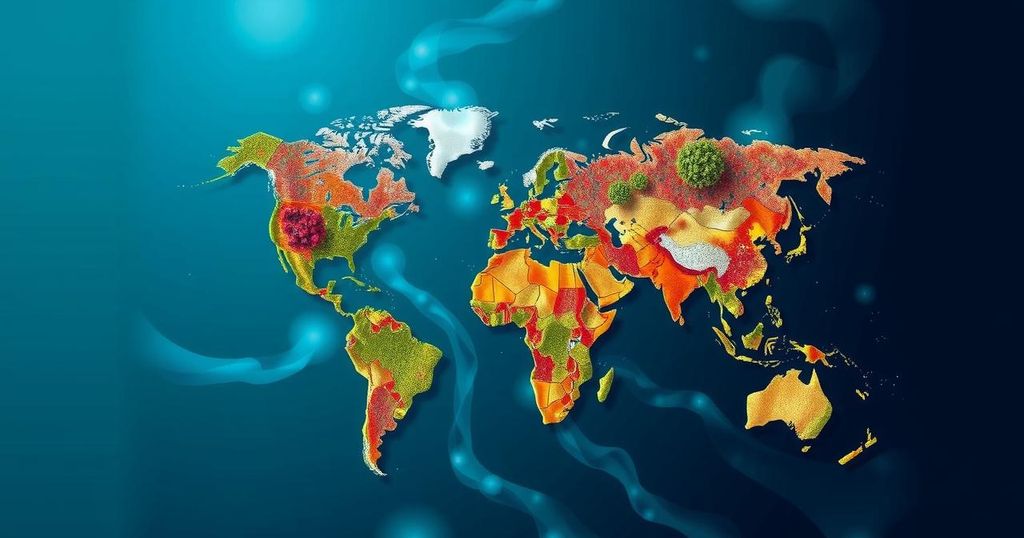Climate Change Poses Unprecedented Threats to Global Health, Warns New Report
The latest Lancet Countdown report warns of unprecedented threats to global health due to climate change, indicating record-setting impacts from extreme weather events, diseases, and food insecurity. While some progress has been made in reducing pollution and increasing renewable energy usage, the urgent call for action remains clear as nations prepare for significant climate discussions.
A recent report highlights the escalating threats posed by climate change to global human health, indicating that actions delayed have resulted in increased mortality. With 2023 anticipated to be the hottest year on record, the report is a grim reminder of the ongoing impacts of extreme weather phenomena such as heatwaves, floods, hurricanes, and wildfires. This report was released in the lead-up to the upcoming United Nations COP29 climate talks in Azerbaijan and amid a politically charged environment in the United States, where the possibility of climate change skeptics returning to power looms.
The issue of climate change and its multifaceted impacts on human health has garnered significant attention from global health experts and organizations. The Lancet Countdown, which consists of a coalition of health and climate change experts, provides annual updates on the interplay between climate change and public health by monitoring various indicators. This year’s report is particularly alarming, as it describes unprecedented threats to health that are directly correlated with climate change, including increases in extreme weather events, the spread of infectious diseases, and exacerbation of food insecurity.
In summary, the report underscores an urgent need for global action on climate change to mitigate the dire health impacts that are already being witnessed. Key indicators reveal alarming trends in health deterioration related to environmental changes. While there are some positive developments, such as reductions in air pollution deaths and an increased share of renewable energy in power generation, these are overshadowed by the ongoing threats to health and well-being posed by climate change. Collective and immediate action is necessary to prevent further escalation of this health crisis.
Original Source: www.barrons.com




Post Comment